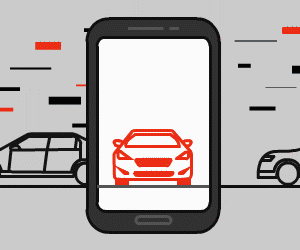New age “geo-fencing” technology and tougher rental checks on fleet are being considered as possible solutions to vehicle terrorism, after another van ploughed into the crowded streets of Barcelona overnight.
The attacks overnight left at least 16 dead and an estimated 80 people injured. Three Australians have been injured in the attack, with a woman from NSW among those seriously hurt.
The weapon of terror used was a rented white Fiat van, driven by 28-year old Driss Oukabir, who was born in Morocco. Reports suggested that Oukabir hired the vehicle from a rental company in a town 25km from the centre of Barcelona before driving into the city.

28 year old driver Driss Oukabir, the man responsible for the Barcelona attack
After initially telling officers his identification documents had been stolen and that he played no part in the attack, Oukabir handed himself in after seeing his photograph being circulated online and in the media.
The use of vehicles to inflict terror has become a global issue, particularly in Europe following attacks in the UK, Sweden, France and now Spain. The British government is currently developing automotive telematics known as “geo-fencing” to help curb the problem.
It is thought that through the use of satellites, the technology would be able to block unauthorised vehicles from entering security sensitive areas. If a driver was to cross an electronic boundary, the system would connect with their on-board computer to slow their vehicle to a safe level.
Swedish vehicle manufacturers Volvo and Scania are also working on trials of the systems with demonstrations set to take place as early as 2018.
Andrew Brown-Allan, director of the Trak Global Group technology research division, said automotive telematics will play a major role in preventing vehicles being used as a terrorist weapon.
“It is now possible to immobilise a vehicle remotely, using the technology that goes into a telematics black box,” he said.
“Since 2015, there have been at least 14 vehicle attacks worldwide, with nearly 850 casualties.
“We need to harness this relatively new technology to stop terrorists turning vehicles into weapons of mass destruction.”
In the meantime, rental companies are working alongside governments to ensure appropriate security and safety measures are being followed when it comes to car hire. The British Vehicle Rental and Leasing Association said in a statement:
“We have a long-established set of protocols to enable the efficient reporting of any suspicious activity and many operators have specialist security managers that regularly support the police with enquiries,” said chief executive Gerry Keaney.
“We do not have access to counter-terrorism watch-lists, but we are exploring ways in which we can share information more effectively with law enforcement organisations to help them with their investigations.”











